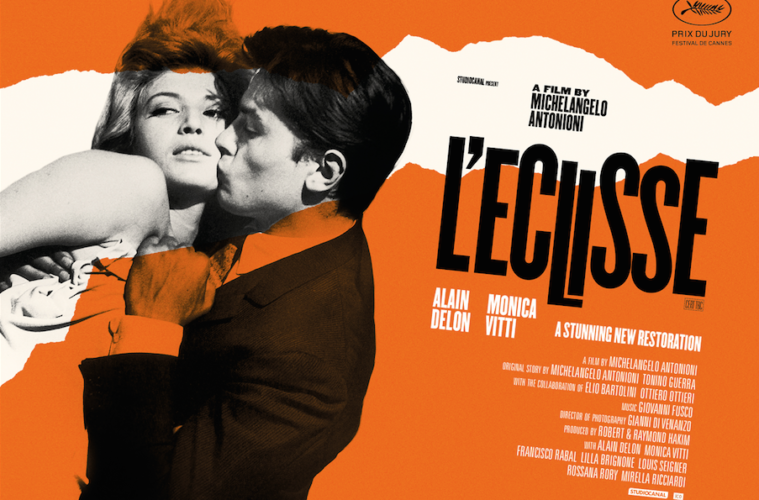
Dailies is a round-up of essential film writing, news bits, and other highlights from across the Internet. If you’d like to submit a piece for consideration, get in touch with us in the comments below or on Twitter at @TheFilmStage.
Little White Lies debuts the poster for a new restoration of Michelangelo Antonioni‘s 1962 classic L’Eclisse.
At TCM, Martin Scorsese discusses three of his favorite actresses, Gene Tierney, Olivia De Havilland, and Teresa Wright:
I’ll start with Gene Tierney. Looking back at the pictures of the ’30s and ’40s, the period now known as the Golden Age of Hollywood, you can feel, more and more, just how controlled many of the performances were, especially in relation to movies made after the arrival of Brando and James Dean in the ’50s. There’s a tension between directors and actors that I find extremely interesting now. It’s there in Tierney’s performances for Preminger, Lubitsch and Mankiewicz, and in John Stahl’s Leave Her to Heaven (not included in this tribute). In those pictures, her beauty was a kind of mask.
After listening to our discussion of the franchise, watch a video essay on what each director offers to the Mission: Impossible films:
Kristofer Thomas on how he stopped worrying and learned to love Inherent Vice:
Inherent Vice (2014) is, by a considerable margin, the best new film I have seen in the past five years. At one point, I watched Inherent Vice so frequently, that I began to dream in its style. The distinctive manner in which the images are assembled remained with me to the point that it would begin to dictate and curate the content and aesthetics of my imagination. My dreams from that period were bathed in haze and sunlight, the colour palette adopting the earthy greens and browns of Doc’s jacket, and wherever there was water it would relentlessly glisten in the same way the ocean adjacent to Doc’s beachfront house does. The characters themselves would never appear, but the atmosphere and tone was undoubtedly lifted from the film. Everything about these subconscious pieces of cinema screamed Pynchon, lurching through an incoherent, free-associative narrative, accompanied with the grace and beauty of Paul Thomas Anderson’s elaborate visuals. From a purely subjective standpoint, I struggle to find faults within the film. I would vehemently defend it as the finest moment of Anderson’s career and, probably somewhat pre-emptively, declare it to be one of the finest pieces of American cinema of the decade
Watch a video essay exploring the macabre, poignant, disturbing images and words of The Phantom Carriage and Wild Strawberries:
Here's the poster for the 2015 New York Film Festival, designed by Laurie Anderson. pic.twitter.com/8mKSLKiN6v
— The Film Stage (@TheFilmStage) August 4, 2015

